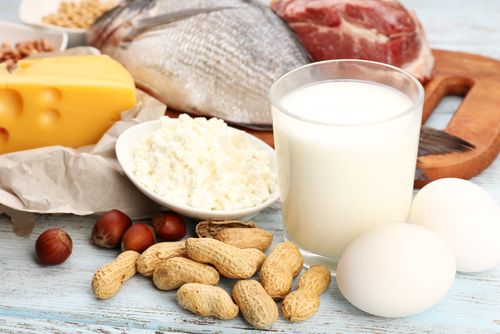
Photo: Shutterstock
Proteins are essential building blocks for your body’s bones, muscles, skin, blood and cartilage. You need it to build and repair tissue, make enzymes, hormones, and other body chemicals. But new research points out that Indian meals in general are greatly lacking in protein components. This is true even for meat eaters, who, it may surprise people to know, make up a majority of Indians.
A multi-city survey was conducted to see whether Indians were consuming enough protein in their daily diets. Times of India reported that a survey called The Protein Consumption in the Diet of Adult Indians Survey was conducted by IMRB, a market research company, interviewing 1,260 Indians. It found that nine out of 10 Indians consumed less than the adequate amount of proteins daily, adding that 91% of the vegetarians and even 85% of the non-vegetarians were deficient. According to the survey, Mumbai had the lowest protein gap of 68%, which was in contrast to Delhi’s high gap of 99%.
“A quick check on the sample population showed the protein intake of 88% people was less than the ideal amount of consumption, indicating there is a huge gap in the protein requirements and protein consumption for each individual,” said the survey.
Not eating enough protein can cause a host of health problems. Weakness and fatigue due to a loss in muscle mass are some of the first symptoms of protein deficiency. Others include weight loss, hair loss and scaly skin. Internally, severe lack of proteins also causes damage to your organs and can impair your immune system.
and scaly skin. Internally, severe lack of proteins also causes damage to your organs and can impair your immune system.
Endocrinologist Shashank Joshi said, “One of my studies published in BMJ Open journal recently showed that India is a nation that consumes excess starch and fat but inadequate proteins. Protein deficiency is the reason that we Indians have poor muscle mass.”
In fact, increased intake of protein could even help safeguard against many lifestyle diseases such as diabetes and high triglyceride levels. But with India being a primarily vegetarian country, the task of eating enough protein can be challenging without the right food education.
Nutritionist Shilpa Joshi said, “It is not as if vegetarian food doesn’t have proteins, but the protein in a fruit for instance is not as easily bio-available for digestion as the protein in eggs are. The question to ask yourself before you take a spoonful from you plate is: where is the protein here? Until you can locate the protein, don’t eat.”
Besides meat, eggs and dairy products such as milk, yogurt and cheese, other good ways to up your protein intake is to include whole grains, beans, nuts, seeds, potatoes, broccoli and spinach in your diet. Click here for a guide to increasing proteins in snacks for children.
Share your thoughts, leave a comment below. Please like FamiLife’s page on Facebook so that you get all our articles and others may find us.
